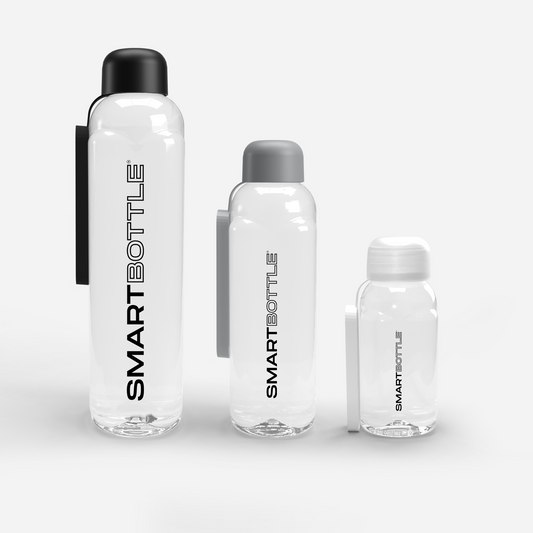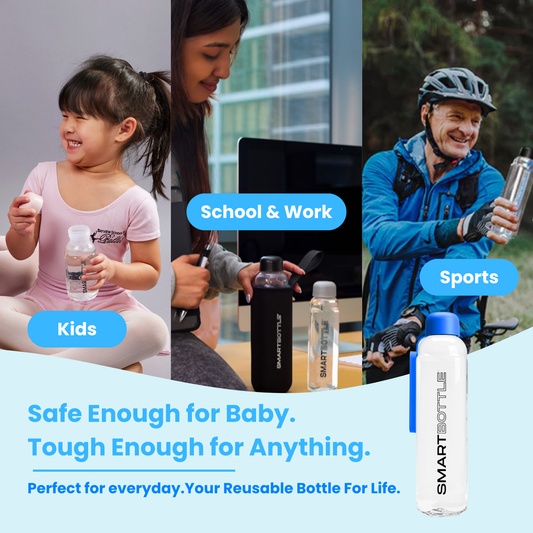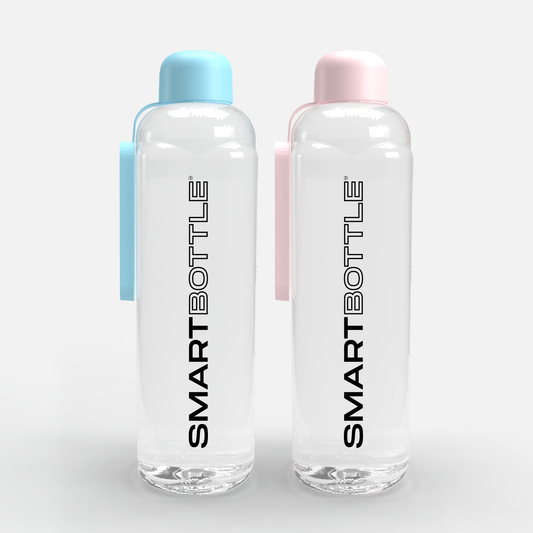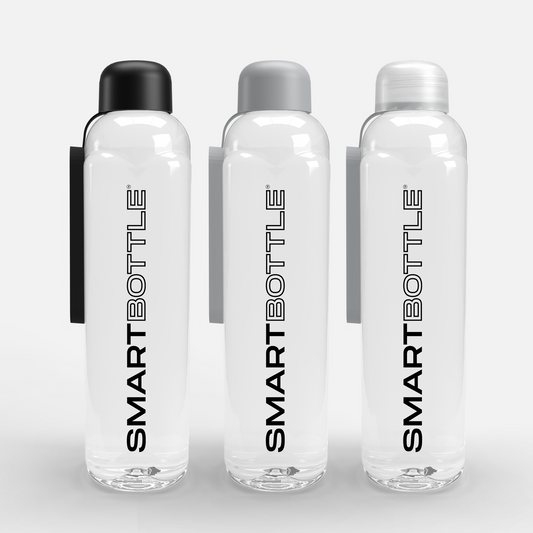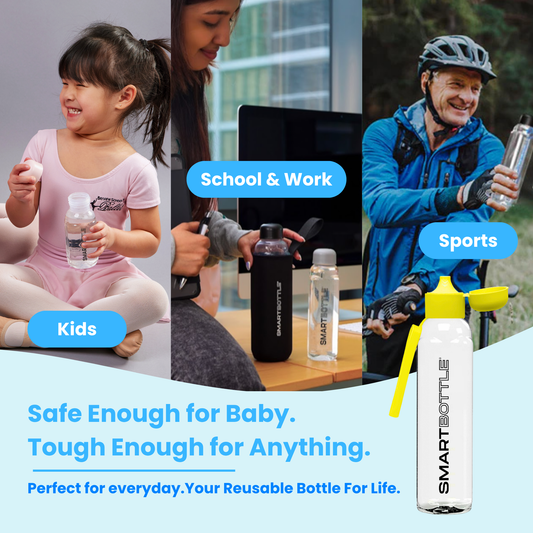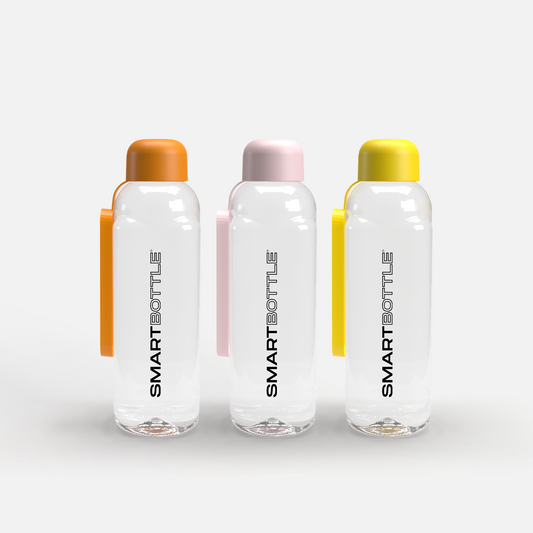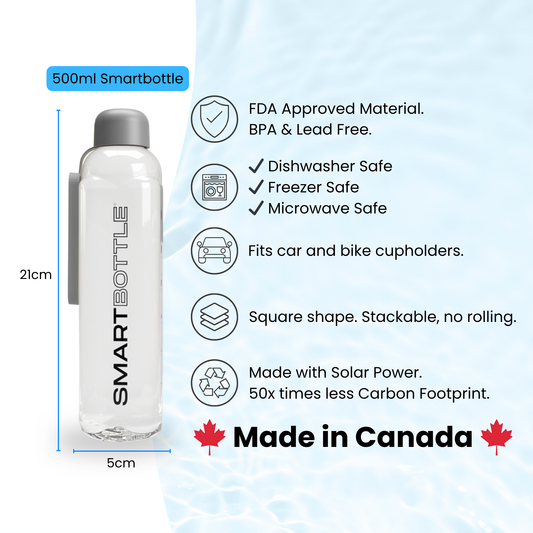
How often should I wash my water bottle? | Importance of a dishwasher safe water bottle
分享
Your water bottle is an essential part of your daily routine, whether you’re at work, the gym, or on the go. However, it’s easy to overlook the importance of regularly cleaning it. According to studies, your water bottle could harbor 40,000 times more bacterial than your pets' bowl! So, how often should you wash your water bottle?
Why Regularly Washing Your Water Bottle is Important
Prevents Bacterial Growth
The mouthpiece, cap, and inner walls of your water bottle are the most common areas where bacteria can accumulate. Water bottles, especially those with narrow openings or complex lids, can harbor bacteria if not cleaned regularly.
Moist environments are perfect breeding grounds for bacteria like E. coli, Staphylococcus, and Salmonella, which can lead to infections and illnesses. Drinking from a contaminated water bottle can lead to stomach issues, diarrhea, and other infections.
Avoids Mold and Mildew
If you leave beverages in your water bottle for long periods without cleaning it, you may notice a slimy film or black spots forming inside. This is likely mold or mildew, which thrive in damp, dark environments. Mold exposure can cause allergic reactions, respiratory issues, and other health problems.
Prevents Unpleasant Odors and Tastes
Over time, if not cleaned properly, your water bottle can develop an unpleasant smell or taste. This is especially true if you use your water bottle for beverages other than water, like coffee, tea, or juice. Regular washing helps keep your bottle fresh and prevents lingering odors or flavors from affecting your drinking experience.
Maintains the Integrity of the Bottle
Regular cleaning also helps maintain the quality and longevity of your water bottle. Residue buildup from beverages or bacteria can degrade the materials of the bottle over time. By cleaning it regularly, you ensure that your bottle stays in good condition and lasts longer.
How Often Should You Wash Your Water Bottle?
Daily Cleaning
Ideally, you should wash your water bottle every day. Even if you’re only using it for water, bacteria can build up quickly, especially in warm environments or if the bottle is left unsealed for long periods. Daily cleaning helps prevent the growth of harmful bacteria, mold, and unpleasant odors.
Deep Cleaning: Once a Week
In addition to daily washing, it’s a good idea to give your bottle a deep clean once a week. This involves using more thorough cleaning methods, such as soaking the bottle in a solution of vinegar and water or using a bottle brush to scrub hard-to-reach areas like the cap and mouthpiece.
Smartbottle™: Dishwasher Safe and Sanitizable
Life is already full of hassles. No one has the time to hand wash multiple water bottles every night, especially busy parents or those using several water bottles throughout the day.
Your water bottle should fit seamlessly into your daily life without creating extra work. That's where Smartbottle™ comes in handy! With its ability to withstand high temperatures and being completely dishwasher safe, Smartbottle™ makes cleaning effortless.
Smartbottle™ stands out with its innovative design that's both dishwasher safe and boiling-water resistant. The square-rounded design eliminates hard-to-reach corners, while all parts are removable for thorough cleaning. Yes, both the water bottle cap and carry ring are also dishwasher safe! Made from FDA approved, BPA-free medical grade materials, it maintains its integrity even after repeated washing and sanitization. For deeper cleaning, you can safely boil your Smartbottle™ weekly, ensuring complete sanitization.
Make the Smart Choice Today
Join thousands of satisfied customers who have discovered the perfect blend of convenience and hygiene with Smartbottle™. Visit our website to explore the Smartbottle™ collection and learn more about our commitment to sustainable, healthy hydration solutions.

